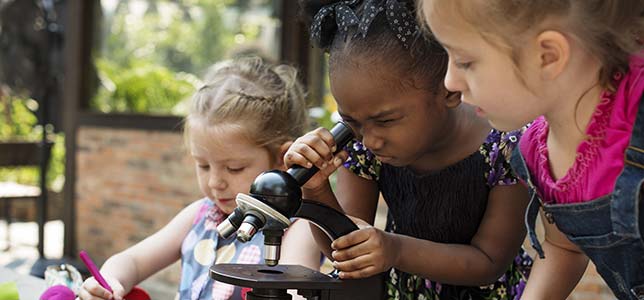NSTA Unveils Science Lab Makeover Competition

The National Science Teachers Association (NSTA) has partnered with Shell to launch the Shell Science Lab Regional Challenge, which will award up to $435,000 in prizes.
Open to select school districts near Shell resources, the challenge will award science lab makeover support packages worth $10,000 for elementary and middle school regional winners and $15,000 for high school regional winners. Each grand prize winner will also receive $5,000 in support to attend the NSTA National Conference on Science Education in the spring, where they will be honored at a teachers' award gala.
"We know that quality science lab experiences are critical, yet far too many schools have little or no lab equipment, materials or training for teachers," said David Evans, NSTA executive director, in a prepared statement. "The Shell Science Lab Regional Challenge will provide teachers and their schools with the equipment they need to properly facilitate their students' learning, while also providing teachers with the professional development needed to support high-quality science teaching in the classroom."
To enter, science teachers from eligible districts and areas must submit their innovative strategies for delivering high-quality lab experiences. Judges will consider entries based on criteria such as "demonstrated science inquiry and innovation in the classroom with limited equipment; demonstrated impact and engagement with students and the community; and demonstrated need for additional professional development and science materials," according to a news release. Judges will select 12 regional winners each at the elementary, middle and high-school levels and one grand prize winner from each group.
"What these teachers accomplish with limited resources is absolutely extraordinary," said Frazier Wilson, VP at Shell, in a prepared statement. "We believe that learning and innovation go hand in hand. By providing further resources, this challenge helps to support innovation as well as foster student excitement about science at an early age."
For more information, including eligible areas, or to register, visit nsta.org.
About the Author
Joshua Bolkan is contributing editor for Campus Technology, THE Journal and STEAM Universe. He can be reached at [email protected].